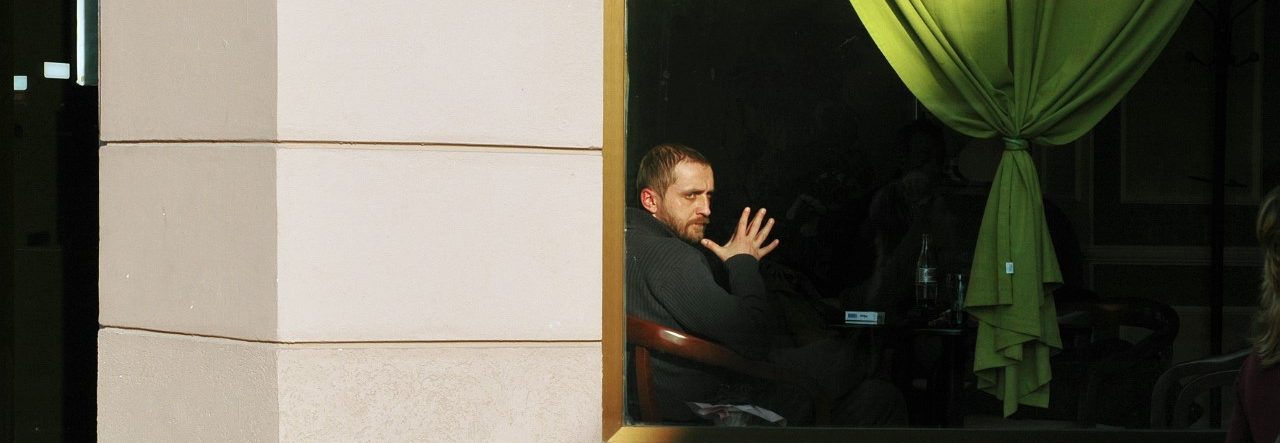Faruk Šehić was born in 1970 in Bihać, in the Socialist Federal Republic of Yugoslavia. Until the outbreak of war in 1992, he studied veterinary medicine in Zagreb. However, then 22-year-old joined the Army of Bosnia and Herzegovina. In spring of 1994 he was severely wounded in the left foot. Six months later he returned to his old duty – platoon commander. In autumn of 1995 he led unit of 130 men. After the war he turned to literature.
His second book Hit Depot (2003) was the literary bestseller in Bosnia despite the fact it was a poetry book. In this book he made a sketch of a several main topics he will use in his later works such as post-war life on the edge of society. His poems are about local (and global) feeling of capitalistic way of life mixed with desperate post-war life in ruins, leftovers of dead society in Sarajevo and Bosnia. Last part of this book are raw and poetic telegrams-poems from the frontline; small monuments to the dead comrades. From the compact, shrapnel like poems he jumps to the short stories.
In Under Pressure (2004), short stories volume, Šehić describes the war through the gun sight of an AK-47. This book is brutal, naturalistic, honest and uncompromising; his characters kill and get killed, they rob corpses and homes, they get drunk and get into fights, they parade in front of a mirror wearing a uniform ripped off a dead soldier, just like the anthological scene from Scorsese’s Taxi Driver (the one where a veteran pulls the trigger in front of a mirror saying the legendary line: You talkin’ to me?!). Then Šehić changed the course into dreamlike and meditative prose.
Quiet Flows the Una (2011) is a book about the person who wants to overcome his personal trauma of the time and space discontinuity caused by war 1992-1995 in Bosnia and Herzegovina. It is also a novel about childhood by the beautiful river, about fishes, plants, swimming, diving and enjoying in life in one small Bosnian city. It’s about three time periods, before the war – childhood, during the war – at the battle line, and after the war – how to continue with normal life in destroyed city and country. This book is dedicated to people who believe in power and beauty of life despite death and mass destruction.
War and nature in his literary works are interwoven and they are standing sometimes in opposition; nature is opposed to war because nature is indestructible, immortal, as human life is so fragile and prone to quick death. Thus, nature is contrapuntal in his works, and represent a sparkle of life who will overcome human destruction and auto-destruction. In his books and in journalistic texts Šehić describes life during war, post-war life and his last literary stage is world after apocalypse. In his words: “During war I did not know that war is sort of apocalypse. Now I know and I know exactly what I am doing in literature. Apocalypse (from my point of view) is not about destruction of the cities, tragic loss of human lives, it is not about fire from hell or sky, it’s not bang and it’s not a whimper, it’s just when civil society cease to exist. When all unimaginable things become so real and possible, even preferably.”
His third main topic is memory. Šehić is still working on discovering that huge and unexplored country made of shadows and words.
Literary critics have hailed Šehić as the leading voice of the mangled generation of writers born in 1970s Yugoslavia, and his books gained readers across the region.
His books are translated into English, French, German, Bulgarian, Romanian, Spanish, Dutch, Macedonian, Polish, Turkish, Slovenian, Italian, Albanian, Ukrainian, Arabic and Hungarian language. Šehić is based in Sarajevo and works as a columnist and journalist in respected political magazine BH Dani and radiosarajevo.ba. Temporarily he is a resident in Berlin regarding DAAD fellowship award for artists 2022/2023.
